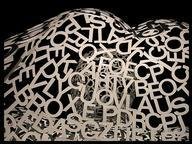Quiz Answer Key and Fun Facts
1. BRTHRGHT - asset or privilege due because of family position
2. CVLTY - politeness
3. DSTRCT - administrative region
4. FRST - leading position
5. GG - 1958 film starring Maurice Chevalier
6. HGHLGHT - emphasize
7. JNX - bad luck
8. KDSKN - soft leather
9. LVD - very angry
10. MNM - two beat note
11. NGGLNG - irritating
12. PPPN - type of apple
13. RHNTS - inflammation of the nose
14. SHLLNG - former UK coin worth twelve pence
15. THRST - desire for drink
16. VSTNG - paying a call
17. WTHN - inside
18. X - Greek letter
19. YDDSH - language related to both Hebrew and German
20. ZP - toothed fastener or US postal code
Source: Author
Lottie1001
This quiz was reviewed by FunTrivia editor
Tizzabelle before going online.
Any errors found in FunTrivia content are routinely corrected through our feedback system.

